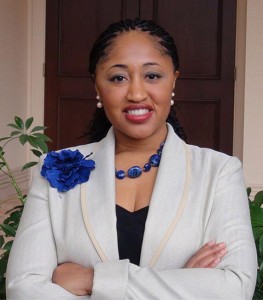 Community Matters is a biweekly opinion column. The views expressed are solely the author’s.
Community Matters is a biweekly opinion column. The views expressed are solely the author’s.
Last weekend I joined eight women activists for a retreat in Williamsburg, VA to plan the Network NoVA 2020 Women’s Summit. The third annual Summit in 2019 brought together almost 1,000 registrants who were motivated and inspired to build on and create a grassroots progressive movement powered by women.
Arlington County is revered as having an engaged citizenry, yet I would posit that oftentimes the same people are active in different areas of the community. If we want to continue to increase engagement we will need to adopt new methods to address the challenges of the next decade and expand the traditional base of leaders.
This year I managed the Commonwealth’s Attorney campaign in Loudoun County of Buta Biberaj, a previous summit attendee. With this campaign, we were faced with several challenges which included expecting traditionally low turnout in an “off off year” election, the need to coordinate numerous individual campaigns, grassroots organizations, and party programs, and a desire to make sure state party resources flowed into our races proportionally to neighboring campaigns.
In order to overcome these challenges we felt we had to do something different. Buta’s record of community leadership, her journey to political office, and the role that women played in her campaign and so many others, provide an excellent template and justification for why we should rethink and how we can maximize engagement in Arlington.
The human element. We observed that traditional canvassing protocols (door knocking — the backbone of campaigns) didn’t take into account volunteers’ discomfort with knocking on a stranger’s door, so we provided a training before the canvass. Organizations in Arlington should encourage citizens to provide feedback on current processes and see what works for different types of people. Is meeting attendance low? Maybe the location, time or child care options don’t work for them. Are they fearful of not knowing anyone? Encourage the buddy system. It’s not enough to recognize these concerns, we must also find solutions.
Engagement, like fundraising, is a long term process. You may not get everything you want on the first ask. If you focus on cultivation, like you would a donor, with higher levels of asks over time and engaging them and thanking them each step of the way, you may get them to assume more responsibility. This also requires a coordinated tracking system to follow up with volunteers and participants.
Capitalize on our own resources and retain our institutional knowledge. During the campaign we were tempted to find a celebrity to motivate our base and recruit outside talent to work on campaigns, therefore one of our canvass launches featured local youth and they were amazing! Arlington community members should increase investments in local programs including the Leadership Center for Excellence to groom local talent. We should also invite new leaders to moderate panels and give keynote speeches at our staple community events. When you keep local leaders involved they can also develop and retain institutional knowledge which will eventually result in greater success for us all.
Continue intentional and authentic diversity and inclusion efforts. Organizations and teams are changing procedures and recruiting more diverse candidates and team members. While that’s a great start, these efforts must be authentic. We can’t only engage diverse communities when we need them to check a box. Invite them for all of their talents, not only their “difference”.
In order to continue our record of being an innovative and progressive county, we must embrace new ways of growing our community and rethink traditional engagement.
Krysta Jones has lived in Arlington since 2004 and is active in local politics and civic life. This column is in no way associated with or represents any person, government, organization or body — except Krysta herself.

